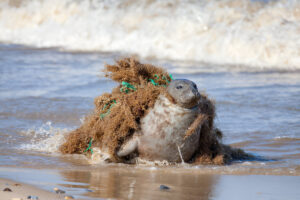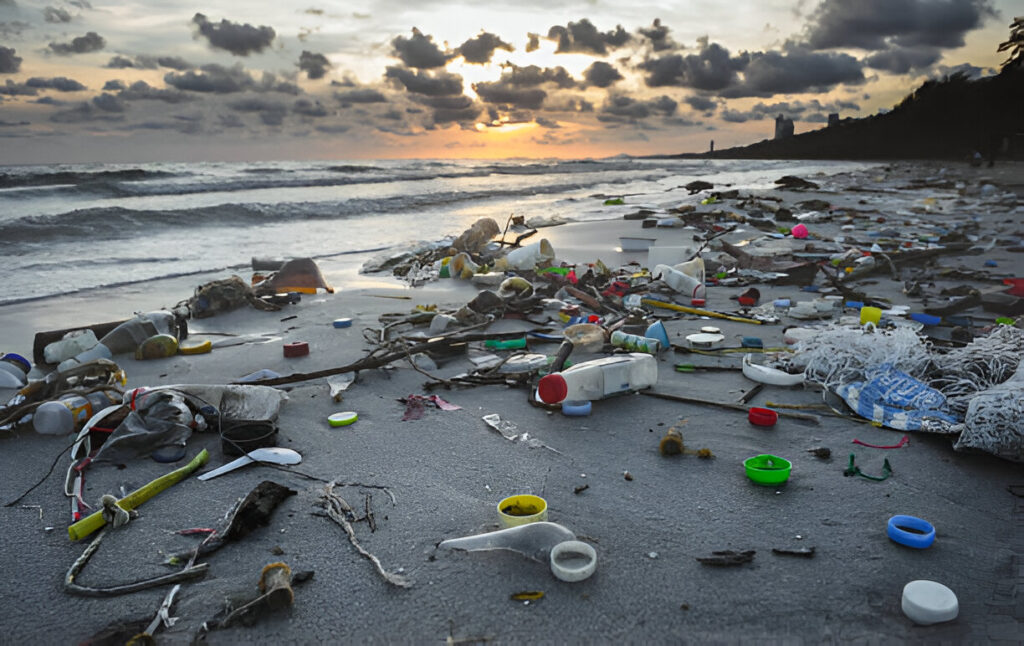From a considerable time, man has become accustomed to using various tricks to make the lifestyle easier. Plastic can be identified a result of those discoveries made in human history. But at present, the results of those discoveries have adversely affected the biological world. The cause of this adverse situation is the excessive inclusion of plastic in the lifestyle, which was used to make work easier.
Why is plastic so harm to nature ?
Plastic is a threat to nature due to its non-degradablity and widespread use. Because plastic does not decompose easily, it does not have positive effect on ecosystems and is a huge threat to living things. The lives of animals living in the ocean are under serious threat due to the fact that they are being eaten with plastic food that is added to the ocean or thought to be food. As a result, it must be said that they are threatened with extinction. Also, plastic production uses so much chemicals. Air and water are polluted by industries through the
production process. Due to the longevity of the plastic used to simplify man’s lifestyle, it will remain in the environment for hundreds of years. Furthermore it is not possible to eliminate the use of plastic due to the damage, we must work to reduce it.
Improper disposal of plastic as waste poses a serious threat to animals, trees and the entire environment. Animals frequently confuse plastic with food. Animals are threatened due to plastic ingestion and digestive problems.
• Sea turtles may confuse floating plastic bags with jellyfish.
• Domestic animals like dogs and cattle also often die after eating polythene.
• Birds, fish and marine mammals also become entangled in plastic debris, causing injury, infection and sometimes death.
This is a situation recognized by many animal organizations today.

The plastic usage of festive seasons
The damage caused by plastic to plant systems in the environment is very high. Plastic waste dumped into natural habitats disrupts ecosystems. Although the slow degradation of plastic is acceptable, these risks persist for decades and compound and intensify over time. Therefore, we must reduce the use of plastic to save the plants and animals that are necessary for the survival of the world.
Various cultural events conducted by man aggravate the use of plastic. Plastics contribute significantly to the waste stream and enter the environment as plastic packaging, decorations and discarded waste. This temporary convenience has long-term environmental
consequences.
• 20 metric tons of plastic wrapping used for gifts, assuming 80% of gifts are wrapped in plastic on Diwali and Christmas.
• Using plastic for decorations including ornaments, lights, artificial trees.
Plastic does not only pose this problem to plants or animals. The impact on human health is equally dire. Harmful chemicals used in the production of plastic and polythene contribute to making humans sick in various ways. Microplastics are in foods, water and air, which contain harmful substances. Humans are also threatened by consuming them. Long-term exposure to such pollutants has made humans prone to various diseases, including cancer, reproductive problems, neurological disorders and more.
Finally, it is clear that the widespread use of plastic is seriously destroying natural ecosystems and threatening biodiversity. But we don’t really have the ability to eliminate plastic consumption right now. Urgent action is therefore required at the individual, community and state levels to reduce plastic use, promote recycling and innovate sustainable alternatives to mitigate these negative impacts.
